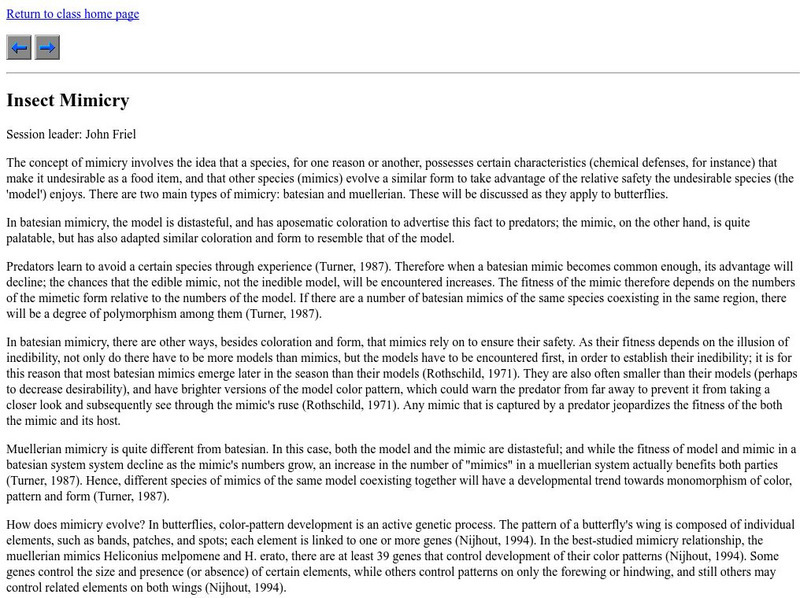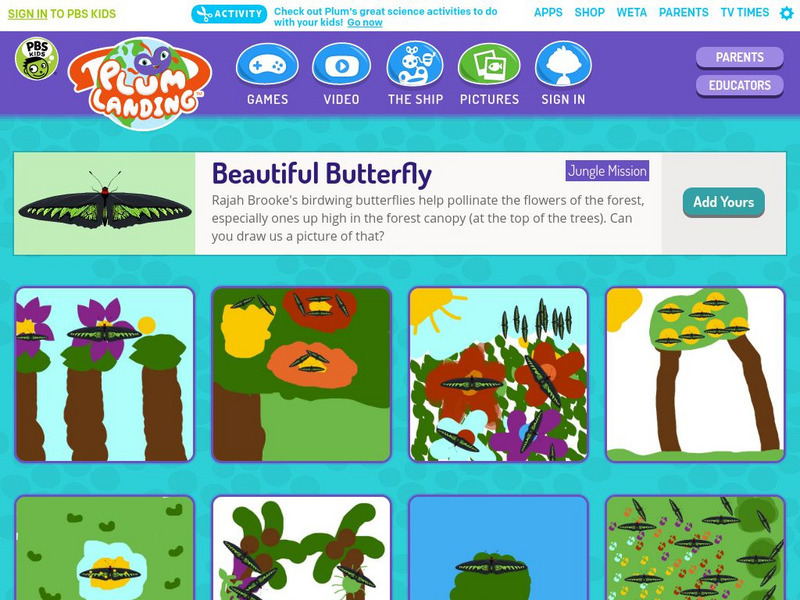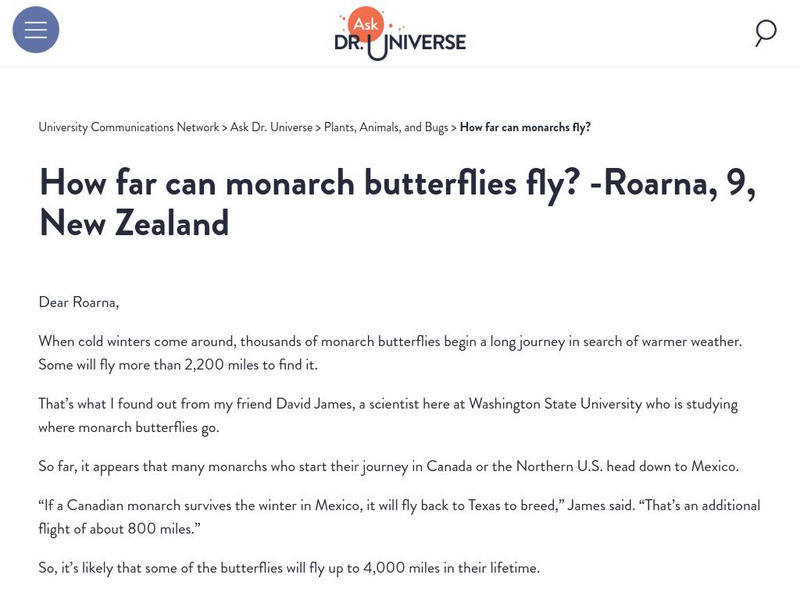Other
The Academy of Natural Sciences
This site describes the museum. It shows the viewer what is currently on exhibit, interesting facts, and many links to other exhibits.
PBS
Pbs Learning Media: Monarch Migration
This video from Nature features the start of the monarch butterfly's northward trek. [3:02]
Annenberg Foundation
Annenberg Learner: Journey North: A Global Study of Wildlife Migration and Seasonal Change
Here you can view maps showing the migratory paths of dozens of animals across the northern hemisphere, report a sighting of one of the animals listed in the database, and much more.
Other
Curriki: Butterfly Life Cycle Lesson Plan
Project to learn about the life cycle of a butterfly and how the caterpillar becomes to be a butterfly.
PBS
Pbs Learning Media: Butterfly Life Cycle Fitness Lesson Plan
Science and exercise unite in this lesson! Students learn about the life cycle of a butterfly while performing certain physical tasks at each stage.
Science Museum of Minnesota
Science Museum of Minnesota: Entomologist
Introduction to entomologists for young researchers. Site includes examples for more information about butterflies and entomologists.
Science Museum of Minnesota
Thinking Fountain: Monarch Watch
An activity to help students learn about the life cycle of a butterfly. Information about metamorphosis and migration is also included.
Scholastic
Scholastic: Butterfly Wings [Pdf]
Two PDF formatted pages of butterfly teaching ideas. One page contains a reproducible poem, and the other has three teaching ideas.
SMART Technologies
Smart: Butterfly Life Cycle
Learn and review the life cycle of a butterfly, with slides for taking notes. Includes a link to a great YouTube Video!
Repeat After Us
Repeat After Us: Cocoon Above! Cocoon Below!
A poem from Emily Dickinson, "Cocoon Above! Cocoon Below!", is provided on this site. Students may listen to this poem read aloud by Bobby Allen and can access a printable version of this piece.
Ed Koday
Ivy Hall: Swallowtail Butterfly
Facts and images of the swallowtail butterfly are reference for young researchers.
Ed Koday
Web Archive: Red Admiral
The upperside of the red admiral butterfly is black with white spots near the wing tips. The forewing has a red band across the middle, and the hindwing has a red band along the edge. The red admirals that are born during the winter are...
Ed Koday
Web Archive: Mourningcloak
Mourningcloaks are a fairly large butterfly with a wing span of 6-10 cm, or 2 1/2 to 4 inches. Their upperside is purple-black, or brown-black, with a wide, bright yellow border on outer edges.There is a row of iridescent blue spots at...
Ed Koday
Web Archive: Painted Lady
The upperside of the wings is orange-brown with darker wing bases. The forewing has a black patch and white bar on leading edge, and the hindwing has a row of 5 small black spots and sometimes has blue scales. The underside has a black,...
Ed Koday
Web Archive: Buckeye Butterfly
The buckeye is a medium-sized butterfly with two large multicolored eyespots on hindwings and one large eyespot on forewings. The background color of the buckeye is mostly brown. Its forewing has 2 orange cell bars and 1 large eyespot...
Ed Koday
Web Archive: Viceroy Butterfly
The upperside of the viceroy is orange and black, and looks a lot like the monarch butterfly, except the viceroy has a black line across the hindwing and a single row of white dots in the black band on the edges of their wings. Where...
Other
Alphabet soup.com: Insects and Spiders
An extensive list of activities, songs, poems, and fingerplays are listed by alphabet-soup.com. Additional recipes, art projects, and literature connections are also included.
University of Arizona
University of Arizona: Insect Mimicry
At this site from the University of Arizona, the two main types of mimicry, batesian and muelleries are discussed as they apply to butterflies. Discusses what each type is and how they are different.
ReadWriteThink
Read Write Think: Using Web Based Bookmarks to Conduct Internet Research
The important thing about this instructional activity is that it connects literature and science. The Important Book by Margaret Wise Brown provides a model for original student poems about a content area topic. Web-based bookmarks guide...
PBS
Pbs Critter Guide: Butterfly
Can you name the four parts of the life cycle of the butterfly? This site features a brief but detailed description of the life cycle of a butterfly and some other fun facts about this interesting insect.
PBS
Pbs Kids: Plum Landing: Beautiful Butterfly
This PBS Kids activity is an extension of a Plum Landing episode featuring the canopy. Using the online tools, students will draw a picture of birdwing butterflies, living things that live in the canopy.
Howard Hughes Medical Institute
Hhmi: Cool Science for Kids: Butterflies Come From?
Hands-on activity for investigating the life stages of a butterfly.
Other
Billy Bear4 Kids: Butterflies and Bugs
BillyBear4Kids.com is a great butterfly resource with links to butterfly cut-outs, flashcards, bookmarks, crafts, online games, and more. Scroll down for reproducibles.
Washington State University
Washington State University: Ask Dr. Universe: How Far Can Monarchs Fly?
Many creatures seek out warm weather as the environment chills for winter. Dr. Universe will address how far these popular butterflies will travel to warm up.


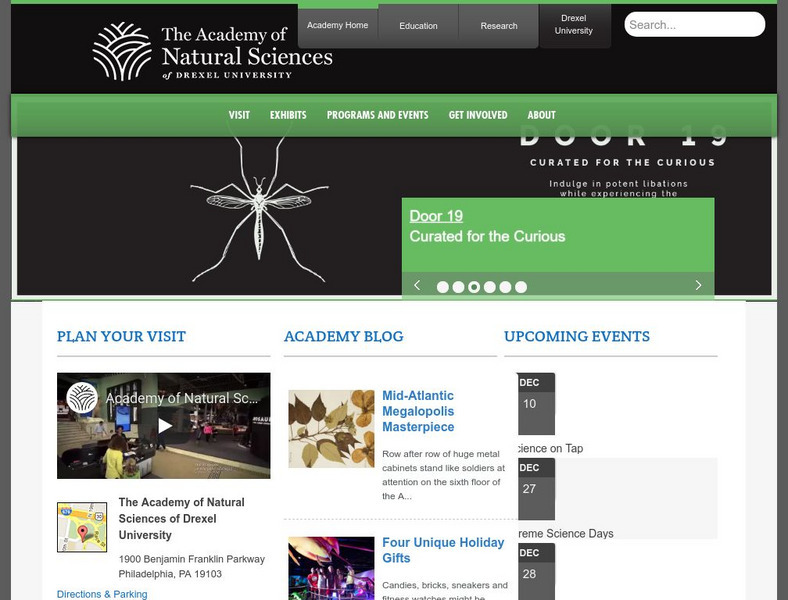


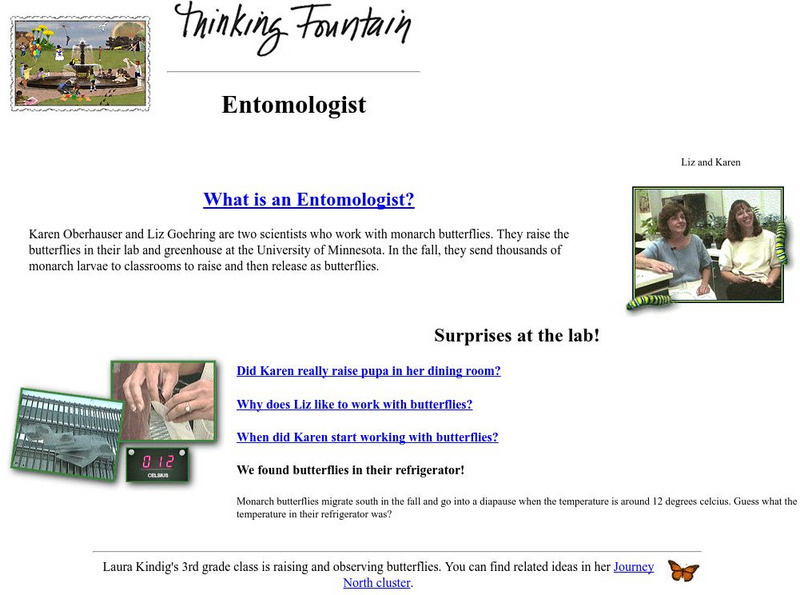

![Scholastic: Butterfly Wings [Pdf] Activity Scholastic: Butterfly Wings [Pdf] Activity](https://content.lessonplanet.com/knovation/original/34509-855a293790469d0123d26ec6a77b0f17.jpg?1661409422)


